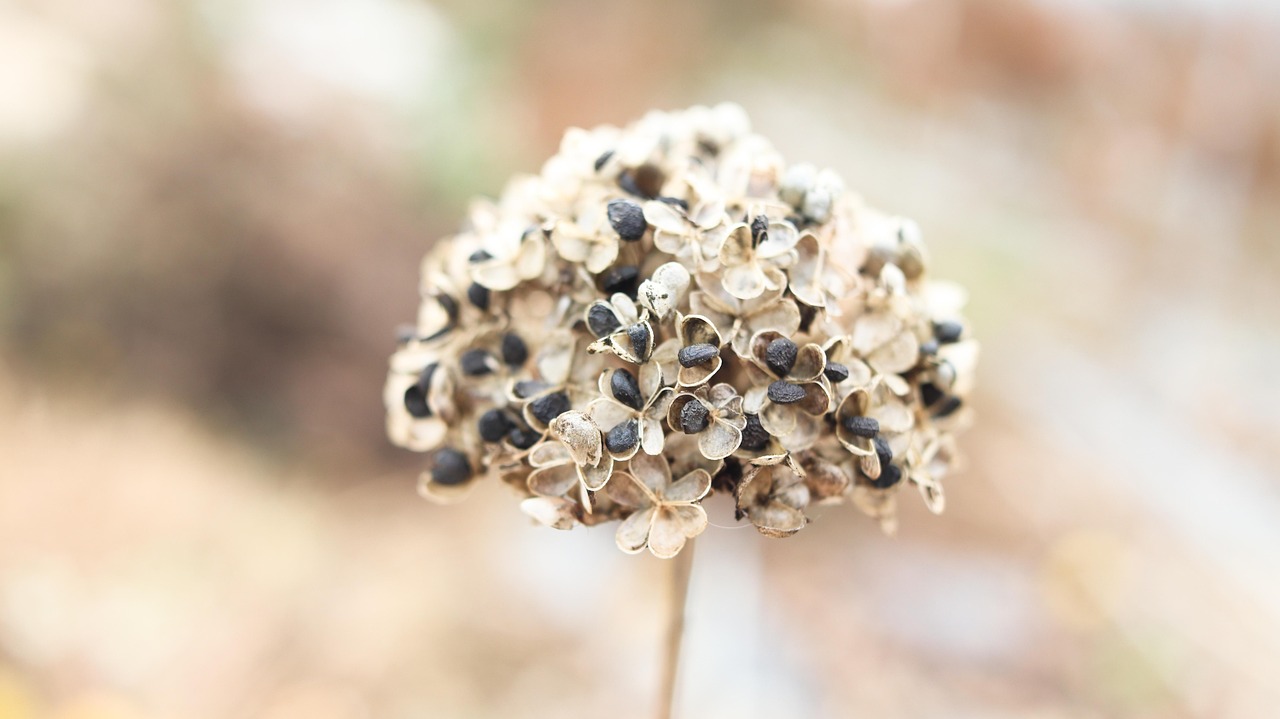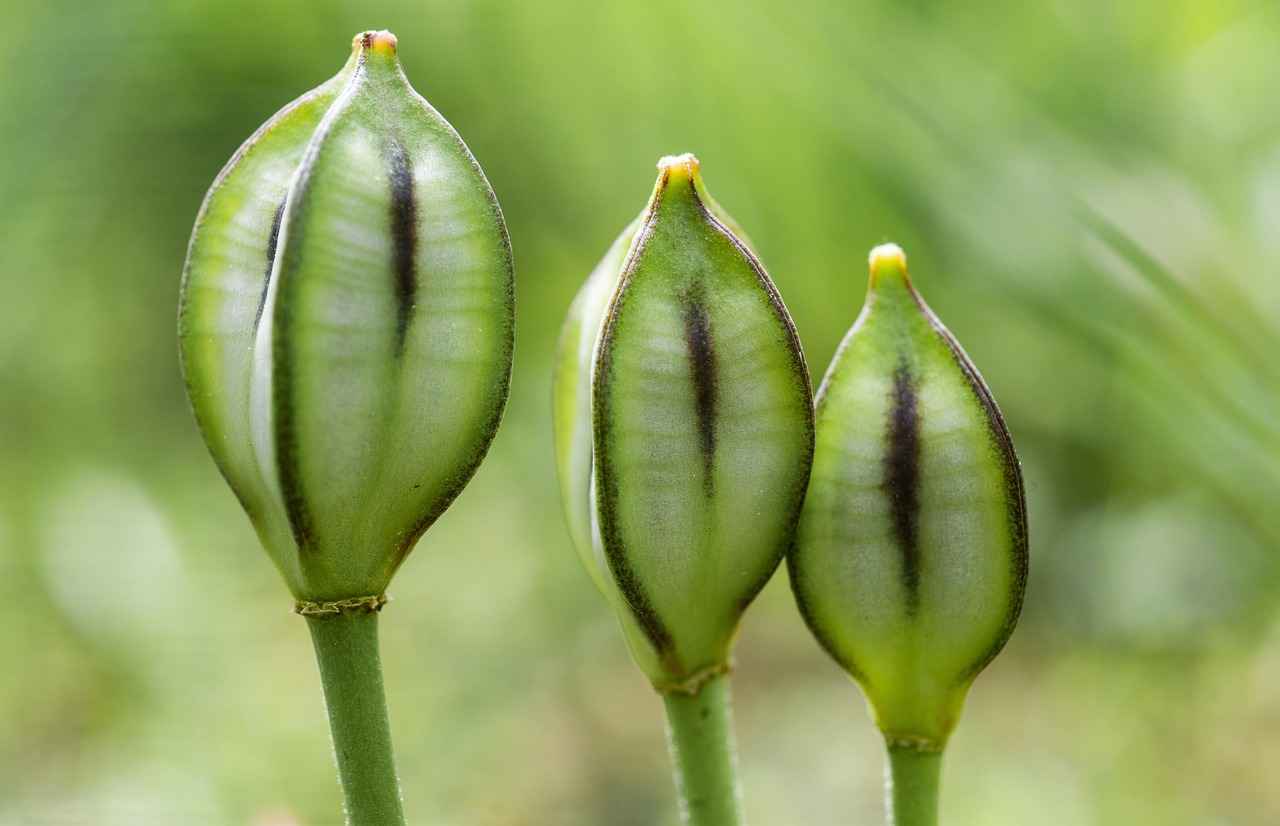Chia seeds are small but incredibly potent superfoods, renowned for their impressive nutritional profile. These tiny seeds, derived from the Salvia hispanica plant, are native to Mexico and Guatemala. In this article, we will delve into the numerous health benefits, nutritional values, and practical ways to incorporate chia seeds into your daily diet for optimal wellness.
Chia seeds are tiny black or white seeds that have gained popularity as a health food due to their dense nutrient composition. They are an excellent source of omega-3 fatty acids, fiber, protein, and various essential minerals, making them a valuable addition to any diet.
Chia seeds are often labeled as superfoods because they provide a concentrated source of nutrients that can enhance overall health. Their high levels of antioxidants help combat oxidative stress, while their fiber content aids in digestion and promotes a feeling of fullness, making them an effective tool for weight management.
One of the standout benefits of chia seeds is their ability to promote digestive health. Thanks to their high fiber content, chia seeds can help regulate bowel movements and prevent constipation. When soaked in water, they expand and form a gel-like consistency, which aids in digestion and ensures a healthy gut.
Chia seeds are packed with vital nutrients, including:
- Protein: Essential for muscle repair and growth.
- Calcium: Important for bone health.
- Magnesium: Supports various biochemical reactions in the body.
- Iron: Crucial for oxygen transport in the blood.
These nutrients contribute to overall well-being, making chia seeds a nutritious addition to any meal.
Chia seeds are beneficial for those looking to manage their weight. Their unique ability to absorb water and expand in the stomach creates a sensation of fullness, which can help reduce overall calorie intake. This makes them a valuable ally in weight loss efforts.
Rich in omega-3 fatty acids, chia seeds can support heart health by lowering bad cholesterol levels and reducing inflammation. Regular consumption may improve cardiovascular function and decrease the risk of heart disease, making them a heart-healthy choice.
Incorporating chia seeds into your diet is easy and versatile. Here are some practical suggestions:
- Add them to smoothies for a nutrient boost.
- Sprinkle on salads for added crunch and nutrition.
- Use them to create delicious chia pudding by soaking in milk or plant-based alternatives.
Chia seeds may assist in regulating blood sugar levels due to their high fiber content. By slowing the absorption of sugar into the bloodstream, they can be particularly beneficial for individuals with diabetes or those looking to maintain stable energy levels throughout the day.
While chia seeds are generally safe for most people, excessive consumption can lead to digestive issues such as bloating and gas. It’s essential to introduce them gradually into your diet and ensure adequate hydration to mitigate potential side effects.
You can find quality chia seeds at health food stores, supermarkets, and online retailers. When purchasing, look for organic, non-GMO options to ensure you are getting the best quality for your health benefits.

What Are Chia Seeds?
Chia seeds are tiny, nutrient-dense seeds derived from the Salvia hispanica plant, which is native to the regions of Mexico and Guatemala. These unassuming seeds have gained immense popularity in the health food community due to their remarkable health benefits and versatility in cooking. With a rich history dating back to ancient civilizations, chia seeds were once a staple food for the Aztecs and Mayans, who valued them for their energy-boosting properties.
Chia seeds are often classified as a superfood because of their concentrated nutritional profile. They are an excellent source of omega-3 fatty acids, which are essential for heart health and brain function. Additionally, they are packed with dietary fiber, providing a whopping 34 grams per 100 grams, which supports digestive health and helps maintain a healthy weight.
These tiny seeds are a powerhouse of nutrients. In addition to omega-3s and fiber, chia seeds contain:
- Protein: Approximately 17 grams per 100 grams, making them an excellent plant-based protein source.
- Calcium: Essential for bone health, chia seeds provide about 631 mg of calcium per 100 grams.
- Magnesium: Important for muscle and nerve function, chia seeds contain around 335 mg of magnesium per 100 grams.
- Iron: Vital for oxygen transport in the body, chia seeds have about 7.7 mg of iron per 100 grams.
The high fiber content in chia seeds plays a crucial role in promoting digestive health. When soaked in liquid, chia seeds can absorb up to 12 times their weight in water, forming a gel-like substance that aids in digestion. This property helps to regulate bowel movements and prevent constipation, contributing to a healthy gut.
Chia seeds can be a valuable ally in weight management. Their ability to absorb water and expand in the stomach creates a sensation of fullness, which can help reduce overall calorie intake. Incorporating chia seeds into meals can curb hunger and support weight loss efforts without compromising nutrition.
Regular consumption of chia seeds may enhance heart health. The omega-3 fatty acids found in chia seeds can help lower bad cholesterol levels and reduce inflammation. This contributes to improved cardiovascular function and a decreased risk of heart disease.
Incorporating chia seeds into your diet is both simple and delicious. Here are some creative ways to enjoy them:
- Add them to smoothies for a nutritious boost.
- Sprinkle chia seeds on salads or yogurt for added crunch.
- Use them to make chia pudding by soaking them in milk or a milk alternative overnight.
- Mix them into baked goods like muffins or bread for enhanced nutrition.
Chia seeds may also assist in regulating blood sugar levels. Their high fiber content slows down the absorption of sugar in the bloodstream, which can be particularly beneficial for individuals managing diabetes or insulin resistance.
While chia seeds are generally safe to consume, it’s essential to introduce them gradually into your diet. Overconsumption can lead to digestive issues such as bloating or gas. To mitigate these effects, ensure you drink plenty of water when consuming chia seeds.
You can find quality chia seeds at health food stores, supermarkets, and online retailers. When purchasing, look for organic, non-GMO options to ensure you are getting the best quality for your health benefits.
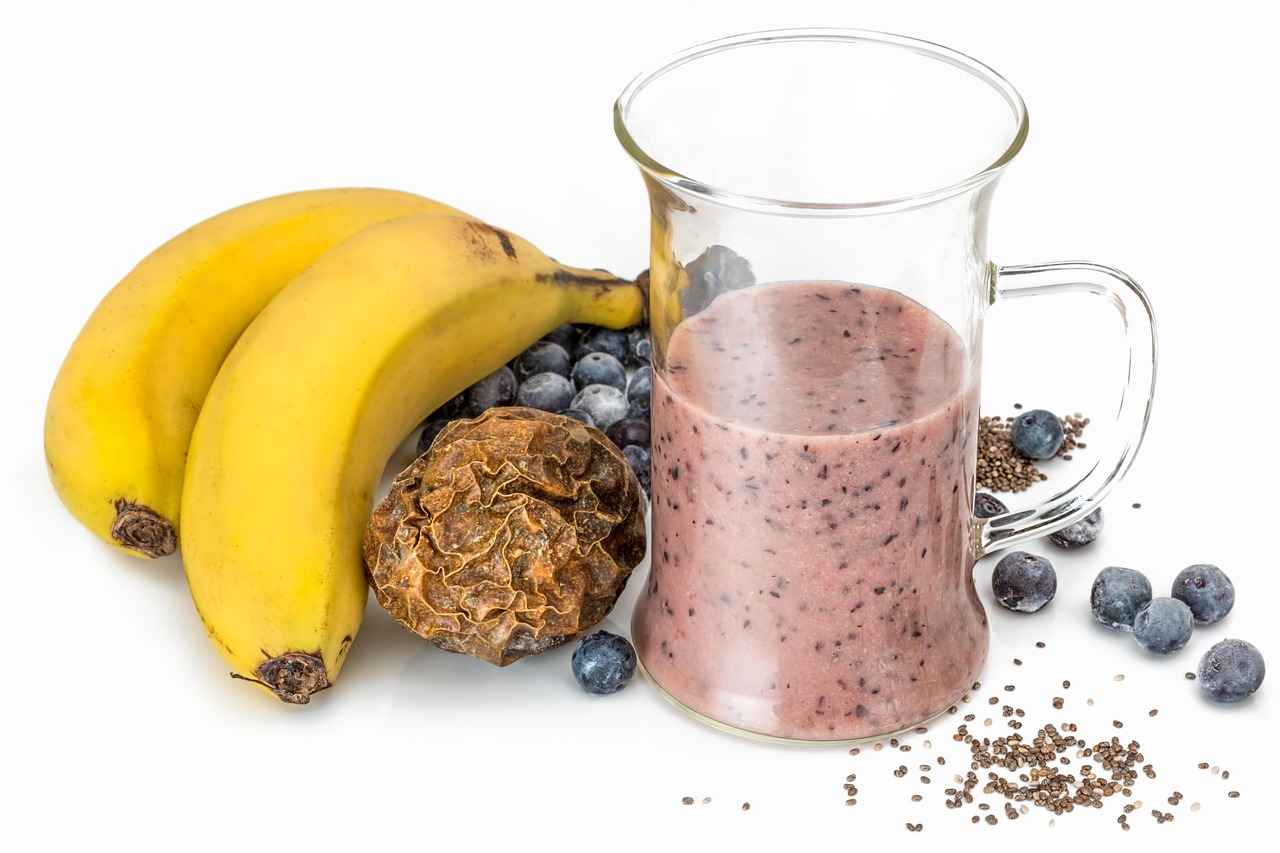
Why Are Chia Seeds Considered a Superfood?
Chia seeds have gained immense popularity in the health and wellness community, often being labeled as a superfood. But what exactly makes these tiny seeds so special? In this section, we will explore the numerous health benefits and nutritional advantages of chia seeds that contribute to their superfood status.
Chia seeds are derived from the Salvia hispanica plant, which is native to Mexico and Guatemala. These seeds are incredibly rich in essential nutrients, making them a potent addition to any diet. A single serving of chia seeds (approximately 28 grams) contains:
- 11 grams of fiber, which aids in digestion and promotes a feeling of fullness.
- 4 grams of protein, supporting muscle repair and growth.
- 5 grams of omega-3 fatty acids, essential for heart health.
- Various minerals including calcium, magnesium, and iron, vital for bone and overall health.
One of the standout features of chia seeds is their high content of omega-3 fatty acids. These healthy fats are known to:
- Reduce inflammation in the body.
- Lower bad cholesterol levels.
- Support overall cardiovascular function.
Regular consumption of chia seeds can help decrease the risk of heart disease, making them an excellent choice for those looking to improve their heart health.
Chia seeds are an excellent source of dietary fiber, with a significant portion being soluble fiber. This type of fiber absorbs water and forms a gel-like substance in the digestive tract, which can:
- Promote regular bowel movements.
- Prevent constipation.
- Support a healthy gut microbiome.
Incorporating chia seeds into your diet can lead to improved digestive health, making them a beneficial addition to your meals.
The unique ability of chia seeds to absorb water and expand in the stomach can help promote a feeling of fullness. This characteristic can:
- Reduce overall calorie intake.
- Assist in weight loss efforts.
By including chia seeds in your diet, you may find it easier to manage your weight while enjoying a nutrient-dense food.
Chia seeds may play a role in regulating blood sugar levels, thanks to their high fiber content. By slowing down the absorption of sugar into the bloodstream, they can help:
- Stabilize blood sugar levels.
- Reduce the risk of spikes and crashes in energy.
This makes chia seeds a suitable option for individuals with diabetes or those looking to maintain steady energy levels throughout the day.
Chia seeds are incredibly versatile and can be easily integrated into various dishes. Here are some popular ways to include them in your meals:
- Add them to smoothies for a nutritional boost.
- Sprinkle them on salads or yogurt.
- Use them to make chia pudding by soaking them in milk or a dairy-free alternative.
With their mild flavor, chia seeds can enhance the nutritional value of almost any dish.
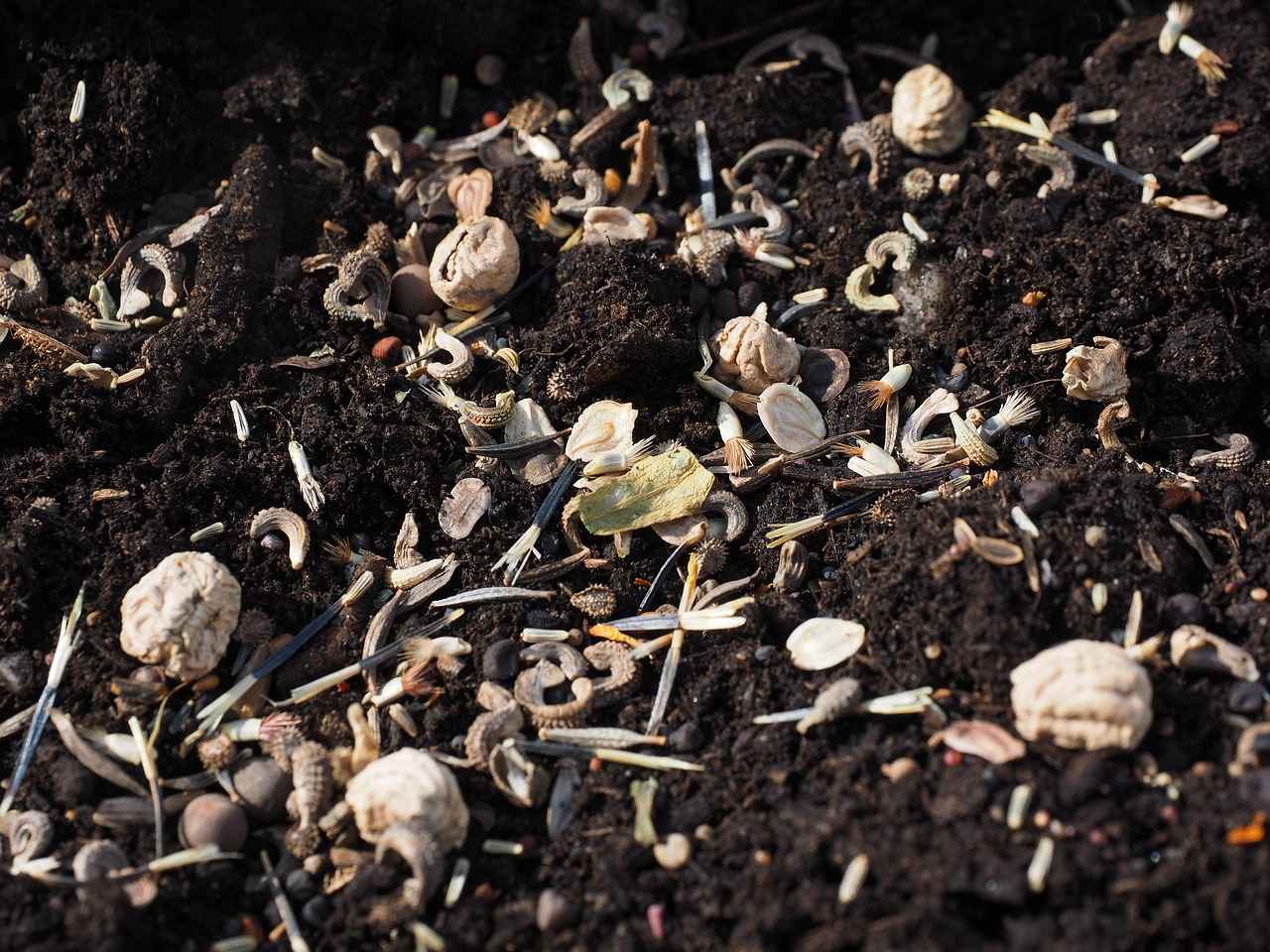
How Do Chia Seeds Support Digestive Health?
Chia seeds, often regarded as a nutritional powerhouse, play a significant role in supporting digestive health. Their remarkable properties make them an essential addition to a balanced diet, especially for those seeking to enhance their gut health. In this section, we will explore how chia seeds contribute to digestive well-being.
Chia seeds are packed with dietary fiber, containing approximately 11 grams of fiber per ounce (about 28 grams). This high fiber content is crucial for promoting digestive regularity and maintaining a healthy gut. Fiber is known for its ability to add bulk to the stool, which aids in preventing constipation and promoting smooth bowel movements.
When chia seeds are consumed, they can absorb up to 10-12 times their weight in water, forming a gel-like substance. This property not only helps keep you hydrated but also creates a soothing effect on the digestive tract. The gel-like consistency can aid in slowing down digestion, allowing for better nutrient absorption and a more gradual release of energy.
For individuals suffering from digestive disorders such as irritable bowel syndrome (IBS) or diverticulitis, incorporating chia seeds into the diet may provide relief. Their high fiber content can help regulate bowel movements and promote a healthy balance of gut bacteria, which is essential for overall digestive health.
Research has shown that the consumption of fiber-rich foods, including chia seeds, can positively influence gut microbiota. A healthy gut microbiome is vital for digestion, immune function, and even mental health. By supporting the growth of beneficial bacteria, chia seeds can contribute to a balanced gut environment.
To reap the digestive benefits of chia seeds, a typical serving size is about 1-2 tablespoons per day. This amount can provide sufficient fiber to support digestive health without overwhelming the digestive system. It’s important to increase your intake gradually and drink plenty of water to avoid any potential digestive discomfort.
- Chia Pudding: Mix chia seeds with your choice of milk or yogurt and let it sit overnight for a delicious breakfast or snack.
- Smoothies: Add a tablespoon of chia seeds to your morning smoothie for an extra fiber boost.
- Salads: Sprinkle chia seeds on salads for added crunch and nutrition.
- Baking: Incorporate chia seeds into baked goods like muffins or bread for a nutritional enhancement.
While chia seeds are generally safe for most people, it’s essential to consume them in moderation. Overconsumption can lead to digestive issues such as bloating or gas. Always ensure you’re drinking enough water when increasing your fiber intake, as this will help your body adjust and prevent discomfort.
In summary, chia seeds are a fantastic addition to your diet, particularly for those looking to improve their digestive health. Their high fiber content, ability to promote gut health, and positive impact on gut microbiota make them a must-have superfood. By incorporating chia seeds into your meals, you can enjoy a multitude of health benefits while supporting your digestive system.

What Nutrients Are Found in Chia Seeds?
Chia seeds are not just a trendy health food; they are a powerhouse of essential nutrients that can significantly enhance your overall health. These tiny seeds, derived from the Salvia hispanica plant, are packed with a variety of vitamins and minerals that contribute to numerous bodily functions. In this article, we will explore the vital nutrients found in chia seeds and how they can benefit your health.
Chia seeds are loaded with protein, calcium, magnesium, and iron. Each of these nutrients plays a crucial role in maintaining bodily functions and promoting overall wellness.
- Protein: Chia seeds contain about 4 grams of protein per ounce, making them an excellent source of plant-based protein. This is particularly beneficial for vegetarians and vegans looking to increase their protein intake.
- Calcium: With approximately 18% of the daily recommended intake in just one ounce, chia seeds are a fantastic source of calcium, vital for maintaining strong bones and teeth.
- Magnesium: Chia seeds are rich in magnesium, providing about 30% of the recommended daily value. Magnesium is essential for muscle function, energy production, and maintaining a healthy heart.
- Iron: These seeds also offer a significant amount of iron, which is crucial for transporting oxygen in the blood and preventing anemia.
In addition to these primary nutrients, chia seeds are also rich in omega-3 fatty acids, which are essential for heart health and reducing inflammation. They contain a high amount of dietary fiber, which aids in digestion and promotes gut health. A single serving of chia seeds can provide about 11 grams of fiber, helping to keep you full and satisfied.
The combination of these nutrients makes chia seeds a nutritious addition to any diet. Their high protein content supports muscle repair and growth, while calcium and magnesium contribute to bone density and strength. The presence of iron ensures that your body can efficiently transport oxygen, enhancing your energy levels.
Furthermore, the fiber content in chia seeds aids in digestive health by promoting regularity and preventing constipation. This can lead to improved gut health and a lower risk of digestive disorders.
Incorporating chia seeds into your daily routine is simple and versatile. Here are some practical ways to add them to your meals:
- Chia Pudding: Mix chia seeds with your choice of milk or yogurt and let them soak overnight for a delicious breakfast or snack.
- Smoothies: Add a tablespoon of chia seeds to your smoothies for an extra nutrient boost.
- Salads: Sprinkle chia seeds on salads for added crunch and nutrition.
- Baking: Use chia seeds in baking recipes to enhance the nutritional profile of your bread, muffins, or energy bars.
In summary, chia seeds are a nutrient-dense superfood that provides a wide array of health benefits. Their rich profile of protein, calcium, magnesium, iron, and omega-3 fatty acids makes them a valuable addition to any diet. By incorporating chia seeds into your meals, you can take a significant step toward improving your overall health and well-being.
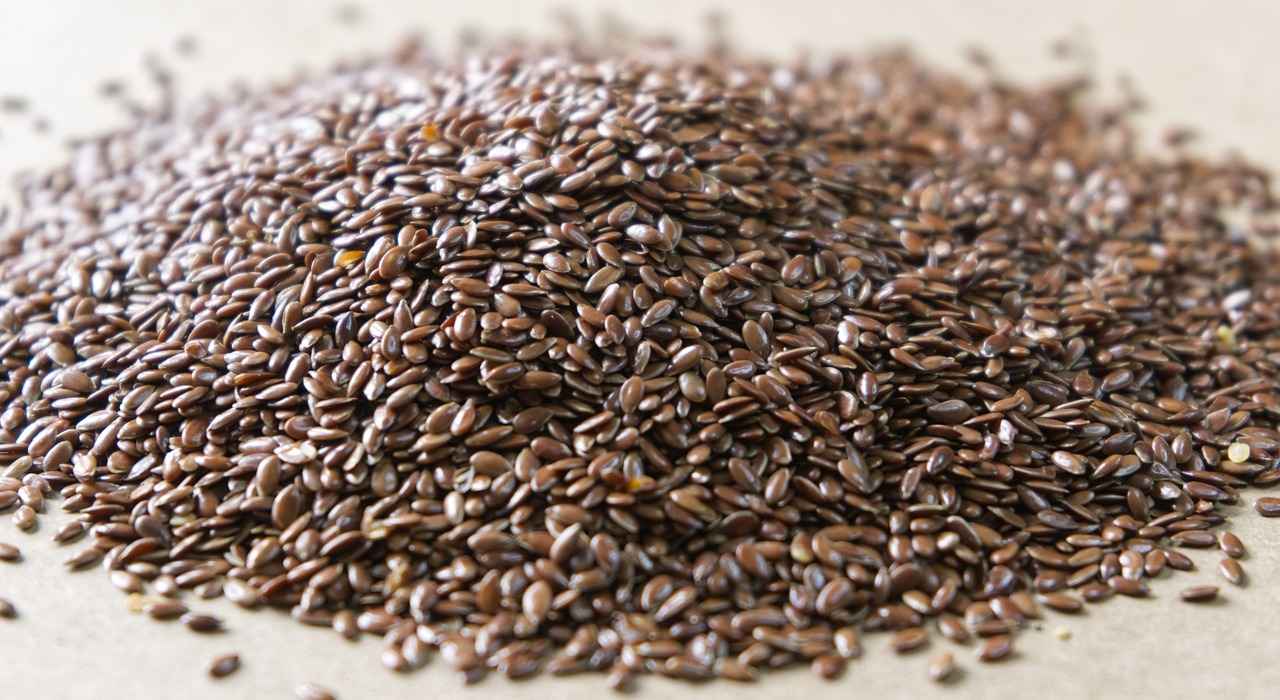
How Can Chia Seeds Aid in Weight Management?
Chia seeds, often hailed as a superfood, have gained popularity for their numerous health benefits, particularly in the realm of weight management. These tiny seeds possess unique properties that can significantly assist individuals looking to maintain or lose weight. In this article, we will delve into how chia seeds contribute to effective weight management, exploring their mechanisms and practical applications.
The effectiveness of chia seeds in weight management largely stems from their remarkable ability to absorb water. When chia seeds come into contact with liquid, they can expand up to 10-12 times their original size. This absorption capacity not only increases their volume but also creates a gel-like substance in the stomach. As a result, consuming chia seeds can promote a prolonged feeling of fullness, which can lead to reduced calorie intake throughout the day.
- High Fiber Content: Chia seeds are rich in dietary fiber, with approximately 11 grams of fiber per ounce. This fiber content plays a crucial role in digestion and helps to slow down the process of food absorption, leading to a feeling of fullness.
- Water Absorption: When chia seeds absorb water, they swell and expand, occupying more space in the stomach. This physical expansion can help to signal the brain that you are full, thereby reducing the urge to snack or overeat.
- Regulated Blood Sugar Levels: The gel-forming property of chia seeds also helps in stabilizing blood sugar levels by slowing the absorption of sugar into the bloodstream. This can prevent sudden spikes and crashes in energy, reducing cravings.
Incorporating chia seeds into your daily routine is easy and versatile. Here are some practical suggestions:
- Chia Pudding: Mix chia seeds with your choice of milk or yogurt and let it sit overnight. In the morning, you’ll have a delicious and filling breakfast.
- Smoothies: Add a tablespoon of chia seeds to your morning smoothie for an extra boost of nutrients and fiber.
- Salads and Soups: Sprinkle chia seeds on salads or stir them into soups for added texture and nutrition.
While chia seeds are generally safe for most people, it’s important to consume them in moderation. Due to their high fiber content, excessive consumption can lead to digestive discomfort, including bloating or gas. It’s advisable to start with a small amount and gradually increase your intake, ensuring you drink plenty of water to help with digestion.
Chia seeds offer a natural and effective way to aid in weight management thanks to their unique properties. By promoting feelings of fullness, stabilizing blood sugar levels, and providing essential nutrients, they can be a valuable addition to any weight loss plan. As always, it’s important to combine chia seeds with a balanced diet and regular exercise for optimal results.

Are Chia Seeds Beneficial for Heart Health?
Chia seeds, often hailed as a superfood, are not just a trendy addition to smoothies and salads; they offer significant health benefits, particularly for heart health. These tiny seeds, derived from the Salvia hispanica plant, are a rich source of omega-3 fatty acids, which play a crucial role in maintaining cardiovascular health.
Research indicates that the omega-3 fatty acids found in chia seeds can help lower levels of LDL cholesterol, commonly referred to as “bad” cholesterol. High levels of LDL cholesterol are a known risk factor for heart disease, as they can lead to plaque buildup in the arteries, increasing the likelihood of heart attacks and strokes. By incorporating chia seeds into your diet, you may effectively reduce these risks.
In addition to their cholesterol-lowering properties, chia seeds are also known for their anti-inflammatory effects. Chronic inflammation is another contributing factor to heart disease, and omega-3 fatty acids are recognized for their ability to combat inflammation in the body. This dual action of lowering bad cholesterol and reducing inflammation makes chia seeds a powerful ally for maintaining heart health.
How Do Chia Seeds Improve Cardiovascular Function?
Chia seeds are rich in fiber, which not only aids in digestion but also contributes to heart health. A high-fiber diet is associated with lower blood pressure and improved overall cardiovascular function. The soluble fiber in chia seeds helps regulate blood sugar levels, preventing spikes that can lead to complications such as heart disease.
Moreover, chia seeds contain essential minerals such as magnesium and calcium, which are vital for maintaining healthy blood pressure levels. Magnesium helps relax blood vessels, while calcium is crucial for proper heart function. Together, these minerals support a healthy cardiovascular system.
What is the Recommended Daily Intake of Chia Seeds?
To reap the heart health benefits of chia seeds, it is generally recommended to consume about 1-2 tablespoons daily. This amount provides a substantial dose of omega-3 fatty acids, fiber, and other nutrients without overwhelming your digestive system. It’s essential to drink plenty of water when consuming chia seeds, as they absorb liquid and expand in the stomach, promoting a feeling of fullness.
How Can You Incorporate Chia Seeds into Your Diet?
- Chia Pudding: Mix chia seeds with your choice of milk or yogurt and let them sit overnight to create a delicious pudding.
- Smoothies: Add a tablespoon of chia seeds to your favorite smoothie for an extra nutrient boost.
- Salads: Sprinkle chia seeds over salads for added crunch and nutrition.
- Baking: Incorporate chia seeds into baked goods like muffins or bread.
In conclusion, chia seeds are a versatile and nutrient-dense food that can significantly benefit heart health. Their rich content of omega-3 fatty acids, fiber, and essential minerals makes them a valuable addition to any diet aimed at improving cardiovascular function. Regular consumption, combined with a balanced diet and healthy lifestyle, can help reduce the risk of heart disease and promote overall well-being.
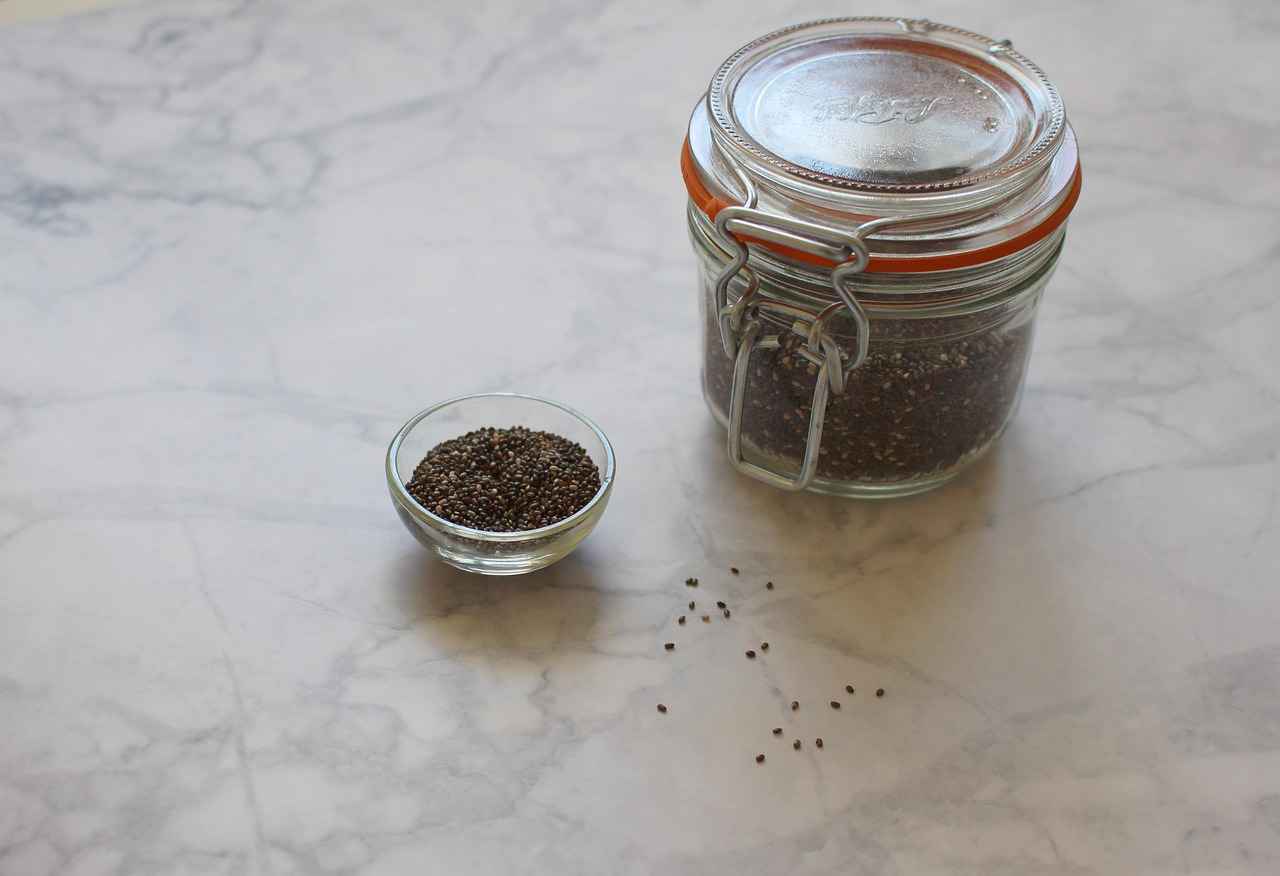
How to Incorporate Chia Seeds into Your Diet?
Chia seeds have gained popularity in recent years as a health food, and for good reason. These tiny seeds are not only packed with nutrients but also incredibly versatile, making them easy to incorporate into various meals. In this section, we will explore several creative and delicious ways to add chia seeds to your diet, enhancing both flavor and nutrition.
One of the simplest ways to enjoy chia seeds is by sprinkling them on top of your favorite salads. Their mild, nutty flavor complements a variety of ingredients. Not only do they add a nice crunch, but they also boost the fiber and omega-3 fatty acid content of your meal. Consider mixing them with leafy greens, colorful vegetables, and a light dressing for a refreshing dish.
Chia seeds can be easily blended into smoothies, providing a thick and creamy texture. When you blend them with fruits, vegetables, and a liquid of your choice, they absorb water and expand, creating a satisfying drink that keeps you full longer. Try adding a tablespoon of chia seeds to your morning smoothie for an extra boost of protein and antioxidants.
Chia pudding is a delicious and healthy dessert option that is incredibly easy to make. Combine chia seeds with your choice of milk (dairy or plant-based), sweetener, and flavorings such as vanilla or cocoa powder. Let the mixture sit in the refrigerator for a few hours or overnight until it thickens. Top with fruits, nuts, or granola for a satisfying treat.
When baking, consider adding chia seeds to recipes for muffins, bread, or pancakes. They can replace eggs in vegan baking, acting as a binding agent when mixed with water. This not only enhances the nutritional profile of your baked goods but also helps to maintain moisture and texture.
Chia seeds can be a fantastic addition to breakfast bowls. Mix them into oatmeal, yogurt, or overnight oats for a nutritious meal that keeps you energized throughout the morning. Their ability to absorb liquid makes them a perfect ingredient for creating a thick, satisfying base.
Chia seeds can also be incorporated into homemade energy bites. Combine them with oats, nut butter, honey, and your choice of add-ins like dried fruits or chocolate chips. These no-bake snacks are perfect for on-the-go and provide a healthy source of energy.
For a nutritional boost, consider adding chia seeds to soups and stews. They can help thicken the broth while adding fiber and nutrients. Just remember to stir them in towards the end of cooking to maintain their texture.
Chia seed drinks have become popular in various cultures. Mix chia seeds with water, lemon juice, or your favorite beverage, and let them sit until they swell. This refreshing drink is not only hydrating but also provides a unique texture and an array of health benefits.
Incorporating chia seeds into your daily meals can be an enjoyable and rewarding experience. Their versatility allows for endless culinary creativity, ensuring that you can easily enjoy their numerous health benefits. Whether sprinkled on salads, blended into smoothies, or made into puddings, chia seeds are a fantastic addition to any diet.

Can Chia Seeds Help with Blood Sugar Control?
Chia seeds have gained considerable attention in recent years for their numerous health benefits, particularly in the realm of blood sugar control. As a rich source of dietary fiber, these tiny seeds have the potential to play a significant role in managing blood sugar levels, which is crucial for individuals with diabetes or those at risk of developing insulin resistance.
One of the key mechanisms by which chia seeds assist in regulating blood sugar levels is their high fiber content. Fiber is known to slow the absorption of sugar in the bloodstream, preventing spikes in blood glucose levels after meals. This slow absorption is particularly beneficial for people who experience rapid fluctuations in blood sugar, as it helps to maintain a more stable level throughout the day.
In addition to fiber, chia seeds are packed with omega-3 fatty acids, antioxidants, and various micronutrients that contribute to overall health. Studies have shown that incorporating chia seeds into the diet can lead to improved metabolic health, which is vital for those managing diabetes. The combination of fiber and healthy fats creates a feeling of fullness, which can help reduce overall calorie intake and assist in weight management—another important factor in blood sugar control.
Moreover, chia seeds can be easily incorporated into a variety of meals. Here are some practical ways to add them to your diet:
- Chia Pudding: Mix chia seeds with your choice of milk or yogurt and let them sit overnight. This creates a delicious and nutritious pudding.
- Smoothies: Blend chia seeds into your favorite smoothie for an added nutrient boost.
- Baking: Add chia seeds to baked goods like muffins or bread for added texture and health benefits.
- Salads: Sprinkle chia seeds on top of salads for a crunchy texture.
Research indicates that consuming chia seeds regularly can lead to improved insulin sensitivity, which is crucial for blood sugar management. A study published in the journal Nutrition Research found that participants who included chia seeds in their diet experienced better glycemic control compared to those who did not. This suggests that chia seeds may not only help individuals with diabetes but could also be beneficial for those looking to prevent the onset of the condition.
It is essential to note that while chia seeds are beneficial, they should be consumed as part of a balanced diet. Overconsumption can lead to digestive issues, such as bloating or gas, especially if adequate water intake is not maintained. Therefore, it is advisable to start with small amounts and gradually increase your intake to allow your body to adjust.
In conclusion, chia seeds represent a powerful ally in the quest for better blood sugar control. Their unique combination of high fiber content, healthy fats, and essential nutrients makes them an excellent addition to any diet, particularly for those managing diabetes or insulin resistance. By incorporating chia seeds into your meals, you can enjoy their health benefits while supporting stable blood sugar levels.

Are There Any Side Effects of Consuming Chia Seeds?
Chia seeds have gained immense popularity due to their numerous health benefits and nutritional value. However, as with any food, it is essential to understand the potential side effects associated with their consumption. This article delves into the possible digestive issues and other concerns that may arise from eating chia seeds, along with recommendations for safe consumption.
While chia seeds are generally considered safe for most people, excessive consumption can lead to various digestive issues. Some of the common side effects include:
- Bloating: Due to their high fiber content, consuming too many chia seeds at once can lead to bloating and discomfort.
- Gas: The fermentation of fiber in the gut can produce gas, resulting in a feeling of fullness or discomfort.
- Constipation: If not enough water is consumed alongside chia seeds, they may absorb water in the digestive tract, leading to constipation.
To enjoy the health benefits of chia seeds without experiencing adverse effects, it is important to introduce them into your diet gradually. Here are some practical tips:
- Start Slowly: Begin with a small amount, such as 1 teaspoon, and gradually increase the quantity over time. This allows your digestive system to adjust.
- Stay Hydrated: Drink plenty of water when consuming chia seeds. This helps to prevent the seeds from absorbing too much liquid in your digestive tract.
- Mix with Other Foods: Incorporate chia seeds into smoothies, yogurt, or oatmeal to help with digestion and enhance nutrient absorption.
Though rare, some individuals may experience allergic reactions to chia seeds. Symptoms can include:
- Itching or swelling: Particularly in the mouth or throat.
- Skin reactions: Such as rashes or hives.
If you experience any of these symptoms, it is advisable to discontinue use and consult a healthcare professional.
While chia seeds are beneficial for many, certain individuals should exercise caution:
- Individuals with digestive disorders: Those suffering from conditions like irritable bowel syndrome (IBS) may find high-fiber foods exacerbating their symptoms.
- People on blood thinners: Chia seeds can affect blood clotting due to their omega-3 fatty acids. Consult a doctor if you are on such medications.
The typical recommended serving size for chia seeds is about 1 to 2 tablespoons per day. This amount provides significant health benefits without overwhelming your digestive system. Remember to adjust your intake based on your body’s response and hydration levels.
In conclusion, while chia seeds are a powerhouse of nutrients, it is crucial to be mindful of their consumption. By understanding the potential side effects and following safe eating practices, you can enjoy the many health benefits that chia seeds have to offer.

Where to Buy Quality Chia Seeds?
When it comes to incorporating chia seeds into your diet, sourcing high-quality seeds is crucial. These tiny powerhouses of nutrition can be found in various places, but not all chia seeds are created equal. Here’s a comprehensive guide on where to buy the best quality chia seeds, ensuring you get the maximum health benefits.
One of the most trusted places to purchase quality chia seeds is at local health food stores. These stores often prioritize organic and non-GMO products, making it easier for you to find seeds that meet your health standards. Look for brands that provide clear labeling about their sourcing and processing methods. This transparency is essential for ensuring that you are purchasing seeds that are free from pesticides and additives.
Many supermarkets now have dedicated sections for health foods, including chia seeds. When shopping at a supermarket, head straight to the organic aisle. Here, you are likely to find a variety of brands that offer organic chia seeds. Always read the labels to confirm that the seeds are non-GMO and preferably certified organic. This will help you avoid lower-quality options that may contain harmful additives.
In today’s digital age, online shopping has become a popular option for purchasing health foods. Websites like Amazon, Thrive Market, and specialty health food retailers provide a vast selection of chia seeds. When buying online, it’s essential to check customer reviews and ratings to ensure the quality of the product. Additionally, look for sellers that offer detailed product descriptions, including sourcing information and certifications.
For those who prefer fresh, local produce, farmers’ markets can be an excellent place to find quality chia seeds. Some local farmers may sell their own organic seeds, ensuring freshness and quality. Plus, buying directly from farmers supports local agriculture and allows you to ask questions about their growing practices.
- Organic Certification: Always choose organic chia seeds to avoid exposure to pesticides.
- Non-GMO: Look for seeds that are labeled as non-GMO to ensure they are free from genetic modifications.
- Packaging: Opt for seeds that are packaged in opaque bags to protect them from light and moisture, which can reduce shelf life.
- Freshness: Check the packaging date to ensure you are buying fresh seeds, as older seeds may lose their nutritional value.
Finding quality chia seeds is essential for maximizing their health benefits. Whether you choose to shop at health food stores, supermarkets, online retailers, or farmers’ markets, always prioritize organic and non-GMO options. By being informed about where to buy chia seeds and what to look for, you can ensure you are making a healthy choice for your diet.
Frequently Asked Questions
- What are the health benefits of chia seeds?
Chia seeds are packed with omega-3 fatty acids, fiber, and antioxidants, which contribute to heart health, digestive health, and weight management. They’re a nutrient-dense superfood that can enhance your overall well-being.
- How can I incorporate chia seeds into my diet?
You can easily add chia seeds to your meals! Sprinkle them on salads, blend them into smoothies, or make delicious chia pudding. They’re versatile and can boost the nutrition of almost any dish.
- Are there any side effects of consuming chia seeds?
While chia seeds are generally safe, consuming too many at once can lead to digestive discomfort like bloating or gas. It’s best to start with a small amount and drink plenty of water to ease digestion.
- Can chia seeds help with blood sugar control?
Yes! Chia seeds can help regulate blood sugar levels due to their high fiber content, which slows down sugar absorption. This can be particularly beneficial for those with diabetes or insulin resistance.
- Where can I buy quality chia seeds?
You can find quality chia seeds at health food stores, supermarkets, or online. Make sure to choose organic, non-GMO options for the best health benefits.
